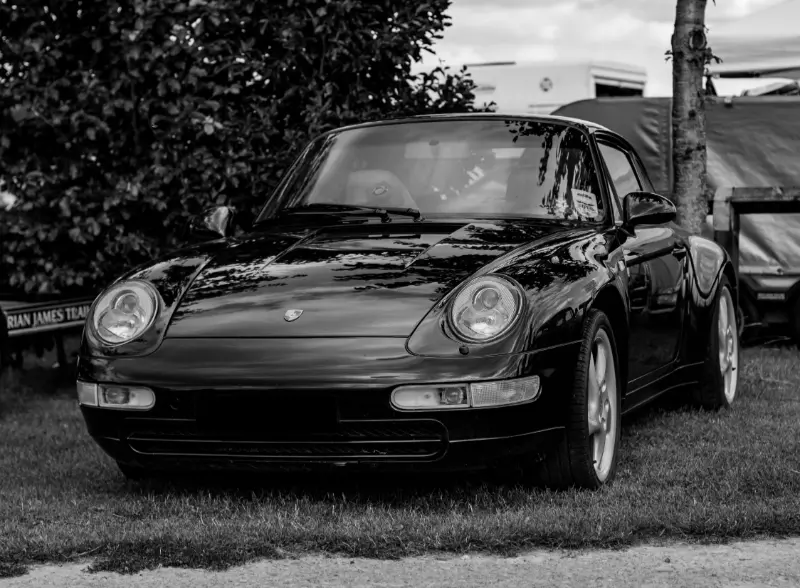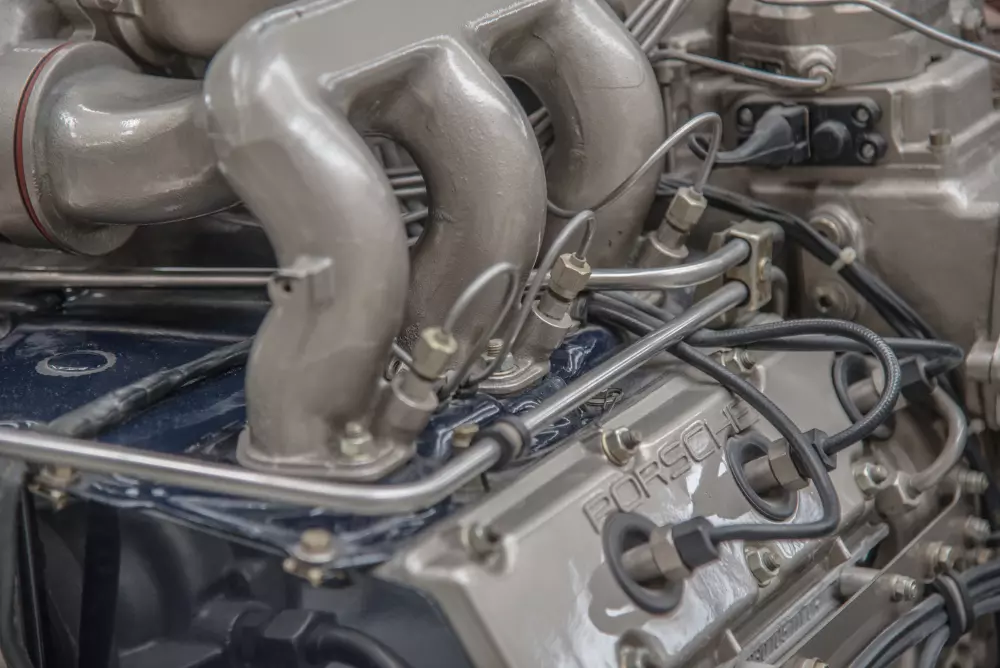How long do Porsche engines last? This article looks at how long a Porsche engine will last? We examine at which is most reliable.
How long will a Porsche engine last?
Unfortunately, when it comes to how long a Porsche engine will last, there is no clear cut way to give a definite answer. It is similar to the "how long is a piece of string?" problem. Depending on how well you look after your Porsche sports car and its engine and how often you have it serviced can all affect the engine's lifespan.
Additionally, the number of years you own it for, your daily driving habits and the potentially high mileage you have clocked up can also affect how long your Porsche motor will last. However, Porsche is known to produce some very long-lasting engines, with great long-term reliability when proper care and regular maintenance is performed.
For example, the engine of the 2007 911 4S was a brand new concept from the Germany-based automaker, with a water-cooled engine system based closely on the previous 996 series of engines.
These newer 4S models had larger displacements of 3.8 litres, compared to the 996's 3.6, due to the larger cylinder bore.
Additionally, they made modifications to the injectors, manifolds and camshafts too.
Owners of Porsche sports cars with the newer 4S engines could drive them for tens of thousands of miles, so long as they followed the procedures and proper service schedules Porsche recommends.
However, if they disregard these recommendations, they can expect their engines to last a fraction of this distance.
To be completely honest, most car buyers only choose Porsches for the image or reputation.

Therefore, for those who simply want to look good, and owning Porsche is one of the best ways to do this, they typically won't be straining the engine to its limits.
Those who want to buy a Porsche for the performance will have to keep an eye on their engine. Additionally, if you buy a used Porsche sports car, you should ensure it is thoroughly checked for any faults or wear and tear and that it has a full service history.
How Long Do Porsches Last?
As one of the premium luxury car producers anywhere in the world, Porsche has poured countless technological innovations into its vehicles. You would expect these state of the art creations to last a lifetime, given they are some of the most expensive cars on the market.
But how long do Porsches last? Here we will look at the difference in longevity between different Porsche models to get a better idea of their lifespans.
As a manufacturer, Porsche is known for producing some very long-lasting and reliable cars. They have married dependability almost perfectly with high-end performance to create some truly exceptional cars.
With the right maintenance and major services, your typical Porsche can make it through roughly 150,000 miles and still provide you with the performance you'd expect.
However, different models will have different lifespans, affected by their construction and how they are driven. So here is a graph of the typical lifespans of different Porsche models.
Cayenne 100,000-200,000
911 100,000-150,000
Panamera 100,000-150,000
Macan 150,000-200,000
Boxster 200,000-250,000
Cayman 150,000-200,000
Which Porsche Engines Are the Most Reliable?
Car depreciation and falling resale value is a boon to many used car buyers, allowing you to pick up some amazing luxury Porsche vehicles and pay a fraction of their original price, saving you money and allowing you to get on the road today with a flash new motor.
However, while car owners may be able to sniff out some fantastic deals on some fantastic cars, you should be wary of any future repair bills that could be coming your way. Given that Porsches, whether used or brand new, are still luxury cars, the costs to repair them can be significant.
However, Porsches differ from other vehicles and luxury brands because even while most of the vehicles in their ranges, such as the 911 or the Cayenne, are classed as luxury vehicles, they are also remarkably reliable. This reliability is seen most distinctly in their powertrains, with some of the most dependable and long-lasting engines of any luxury brand.
However, you should bear in mind that the Porsche engines in the vehicles we are about to discuss will be no older than 25 years. A car produced over 25 years ago is no longer "used" like newer models and becomes a classic car. While some incredibly reliable classic cars are out there, they are very unlikely to be as reliable as a contemporary model fresh from the factory.
Porsche Cayenne
The Cayenne can drain your finances if it is not properly cared for as the manufacturer recommends, but thanks to its robust nature, it won't take much to keep your Cayenne on the right side of working for many years. The performance-oriented SUV did have some teething problems, but the engines for this model showed great reliability for the most part.
The first generation of the Cayenne came with two options: a 4.5-litre V8 and a 3.2-litre VR6. The V8 option, or the "M48", was naturally aspirated in the Cayenne S but was fitted, as the name might suggest, with a turbocharger for the Cayenne Turbo.
The V8 in the Cayenne S is where the trouble was first noticed, with considerable scoring in the cylinders due to failing "Lokasil" coatings. Thankfully Porsche made up for this with the "M4801" in 2008.
This engine was a 4.8-litre V8 with improved cylinder linings and a larger bore to remedy the scoring issue. This was a far more reliable Porsche engine than its previous incarnation, with the only other downside being the brittle plastic coolant pipes that often cracked. There are, however, more robust metal replacements you can buy.

The smaller 3.2-litre VR6 Porsche Cayenne engine was also upgraded in 2008 to a 3.6.
Of course, the VR6 has had its troubles, but they are a reliable source of power when fitted with modern components.
This upgraded VR6 also got rid of the old ignition coil issues present in the former iteration, with its only downside being failures in the PCV valve, which is mostly caused by age.
If you cannot find a first-generation Porsche cayenne on the used car market, you could opt for the 2011 to 2018 second generation.
They have the same powertrains, with some being further upgraded with 3.6-litre twin-turbocharged V6s.
They are just as reliable as the first generation, with only a handful of the 2011 models being recalled for camshaft bolt failures. Due to coolant pipe epoxy failures, some of the V8s were also recalled, but this was a supplier issue and had nothing to do with Porsche's engineering.
Porsche Boxster, Cayman, and 911
For the Boxster, Cayman and a few iterations of the 911, there is an acronym that strikes fear into the hearts of many a Porsche owner - IMS. The IMS bearing issue was a particular problem for Porsche fans who went for the 996, with similar issues cropping up in the modern Boxster, Cayman, and some in the 997 generation. While IMS bearing failures can mean the end of your engine, they can sometimes be saved.
Some consumer reports claim fewer than 5% of the Porsche Boxsters produced have any IMS issues, let alone engine failures. This is especially true of the 2005 to 2008 987 Boxster and Cayman generation, which had extremely reliable IMS bearings.
However, for the sake of balance, we should mention that the earlier renditions of the 997, along with some 987 Boxsters and Caymans, had some significant flaws, including the cylinder scoring that the Cayenne S suffered from.
However, Porsche made a point to get around these issues. The 996 Turbo and 996 GT3 generations did not have an IMS bearing at all, removing the source of the issue.
Additionally, the second attempt at the 997 and 987 models removed both the IMS issue and the cylinder scoring.
Therefore, newer models of the Porsche 911 and 987 since 2009 has been free of these issues, whether you opt for a 911, Boxster or Cayman.


Porsche 993
The Porsche 993 is just this side of the 25-year mark for classic cars. As the last air-cooled 911, the 993 generation is incredibly popular with die-hard Porsche fans.
Therefore, given how desirable this model is, there are many who wish to get their hands on one. However, the 993 is quite old, and as it approaches its classic age, they are far from being fault-free.
Oil leaks were the primary issue with this 1996 generation and continue to be one of the main issues for most Porsche vehicles, along with their clutch pedals.
The 993 generation are also known for carbon obstructions in their injection ports.
This is because they were fitted with secondary air injection systems to accommodate newer emissions regulations. However, the valve guides quickly wore out, leading to clogs.
As if that wasn't bad enough, Porsche used cheap parts made from soy to cover the wiring harnesses, which Porsche owners noticed was a magnet for hungry rats. However, more robust, modern materials are available to solve these issues.
The 993 does have a reliable engine once you swap out the original valve guides. However, if you don't want to go through the fuss of replacing them, you could always opt for the 993 Turbo model, which is a good car in the same vein as the standard 993.
If you want to find out more about Porsche servicing and repair in Maidstone and Kent get in touch today.

